This post may contain affiliate links. Please read our disclosure policy.
Easy Oven, Baked Salmon Steaks Recipe (Healthy)- is a healthy and tasty dinner ready in less than 30 minutes!
Serve with lemon wedges and this easy asparagus recipe.
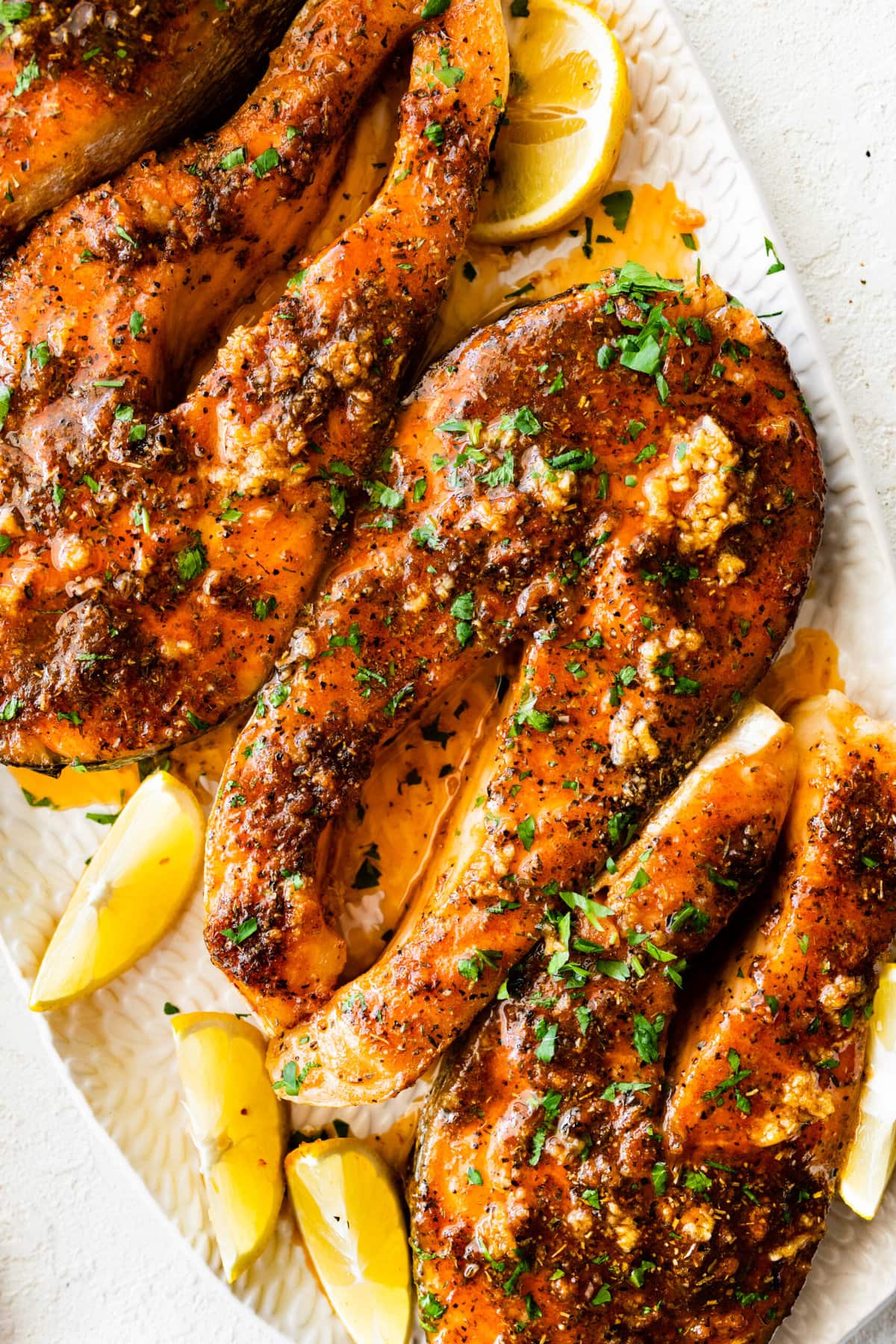
Why You’ll Love This Recipe
Salmon steaks are popular in Italy, and I’ve always loved them! You’ll love this Easy Oven Baked Salmon Steaks recipe for several reasons:
Flavorful Seasonings (spice blend): Combining garlic, brown sugar, Italian seasoning, paprika, salt, and pepper creates a delicious and well-balanced flavor profile.
Quick Cooking Time: With a baking time of 15-22 minutes, this recipe provides a relatively quick and efficient way to prepare a tasty salmon dish. You can always grill salmon steaks but this method is quicker and just as tasty!
Moist and Tender Results: Basting, rubbing, and drizzling with olive oil contribute to a moist and tender texture in the finished salmon.
More recipes: Stuffed Salmon, Orange Salmon, Pesto Salmon, and Salmon Picatta.
Pair this recipe with the best side dishes for salmon recipes!
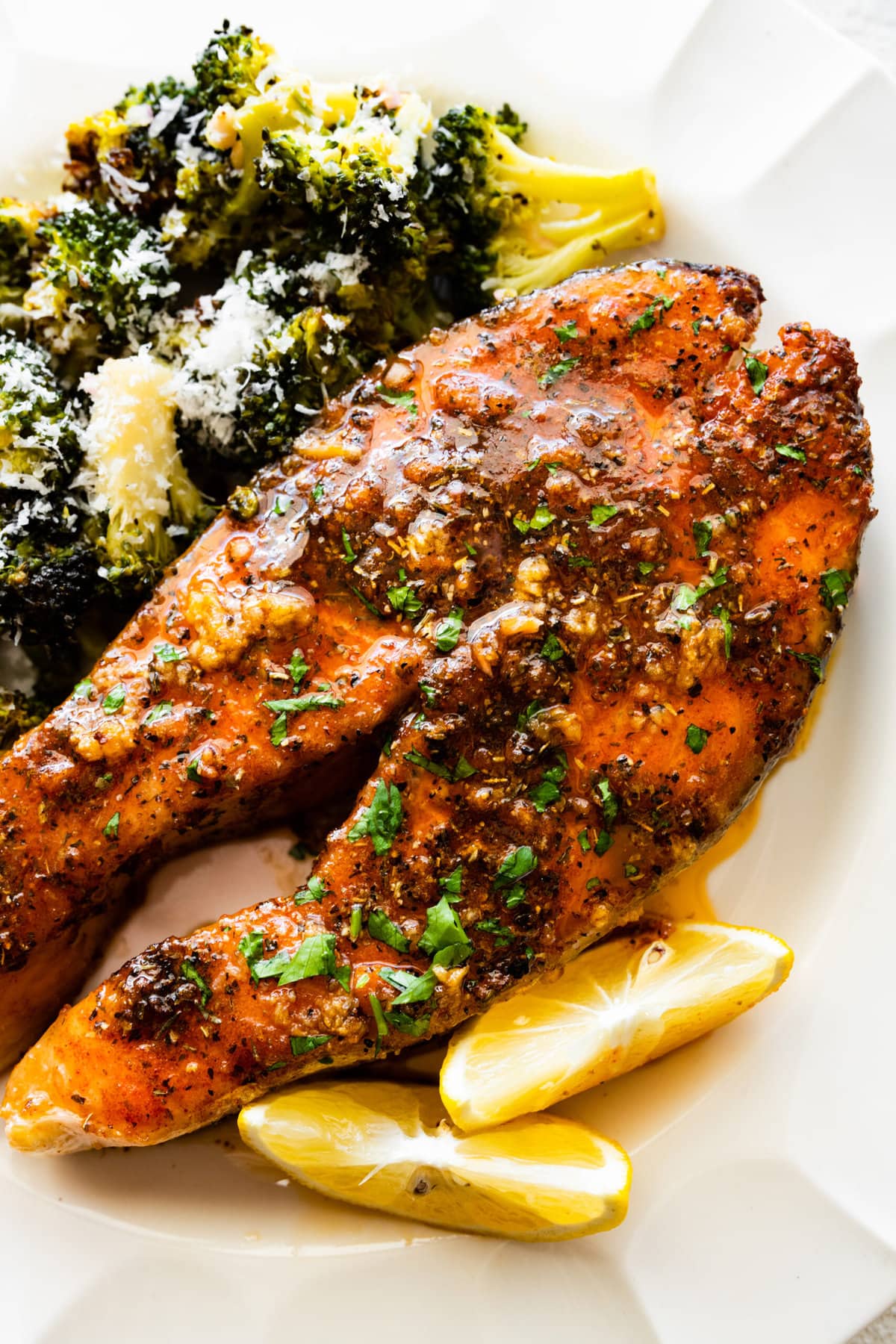
Table of Contents
Simple Ingredients
Cooking salmon in the oven is easy and will be your new favorite way to prepare it.
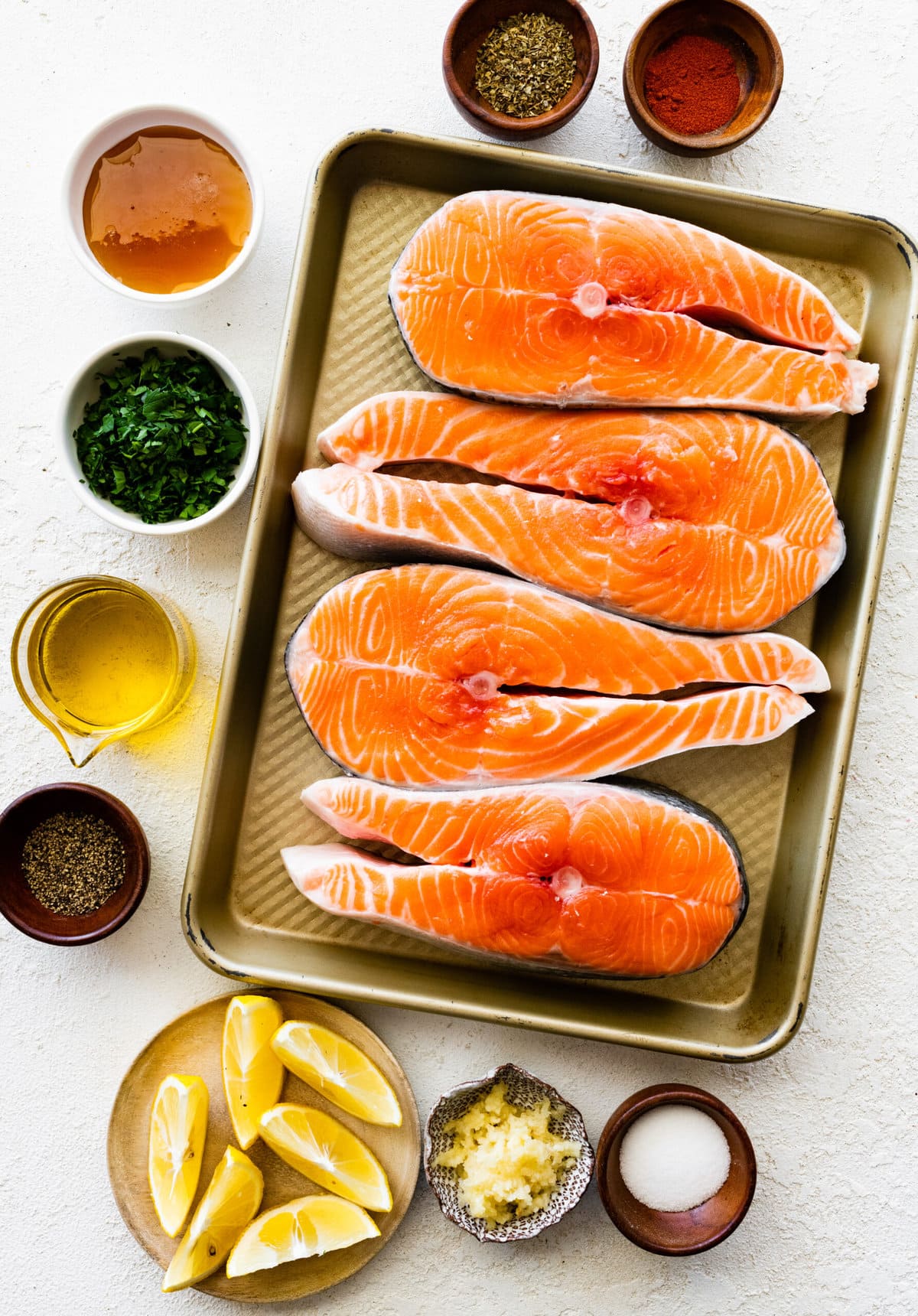
- Salmon Steaks (bones removed): Fresh, boneless salmon steaks provide a rich source of omega-3 fatty acids and a delicious, flaky texture when cooked. If you can’t find salmon steaks use salmon fillets!
- Melted Butter OR Olive Oil: Melted butter adds richness and a smooth texture, while olive oil brings a fruity and slightly peppery flavor. Choose based on your preference.
- Garlic (minced): Garlic enhances the savory flavor of the dish, providing a distinct aroma and taste
- Brown Sugar: Brown sugar adds a hint of sweetness, balancing the savory and enhancing the overall flavor profile. Alternatively, you can use honey.
- Italian Seasoning: A blend of dried herbs such as oregano, thyme, basil, rosemary, and others, providing a Mediterranean-inspired flavor to the salmon.
- Ground Paprika: Ground paprika contributes a mild, slightly sweet, and smoky flavor with a vibrant red color.
- Salt: Salt enhances the natural flavors of the salmon and other ingredients, bringing balance to the dish.
- Ground Black Pepper: Ground black pepper adds a mild heat and pungency, complementing the other seasonings.
- Garnish with fresh herbs of choice and fresh lemon wedges.
See the recipe card for quantities.
How to Cook Salmon Steaks (Instructions and Photos)
This easy recipe is prepared with a few simple steps. It’s the best way to cook salmon steaks, and you will love them!
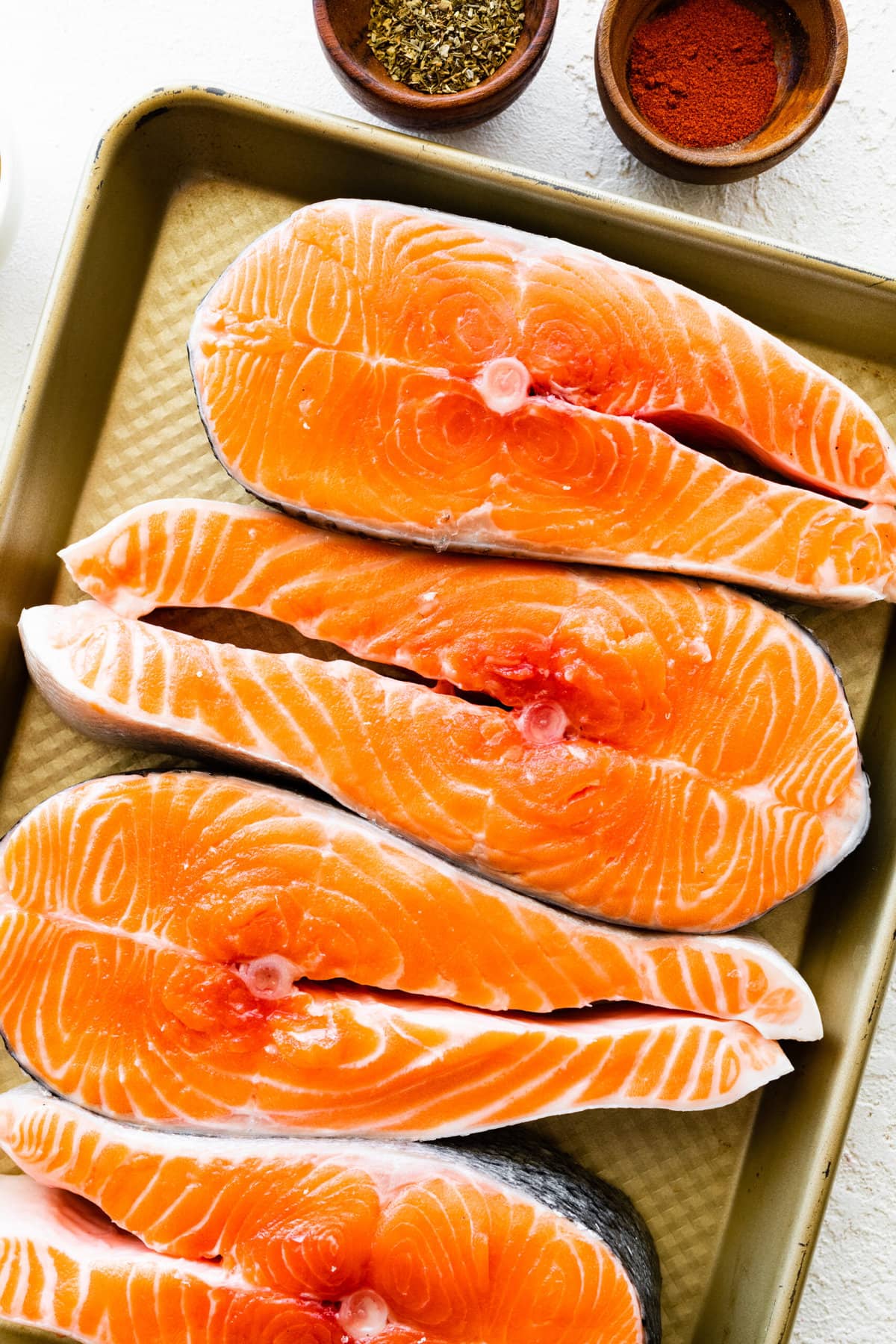
Preheat the oven to 400°F. Line a rimmed baking sheet with aluminum foil or parchment paper and grease with a little cooking spray or oil. You can also use a large baking dish.
Pat salmon steaks dry with a clean paper towel.
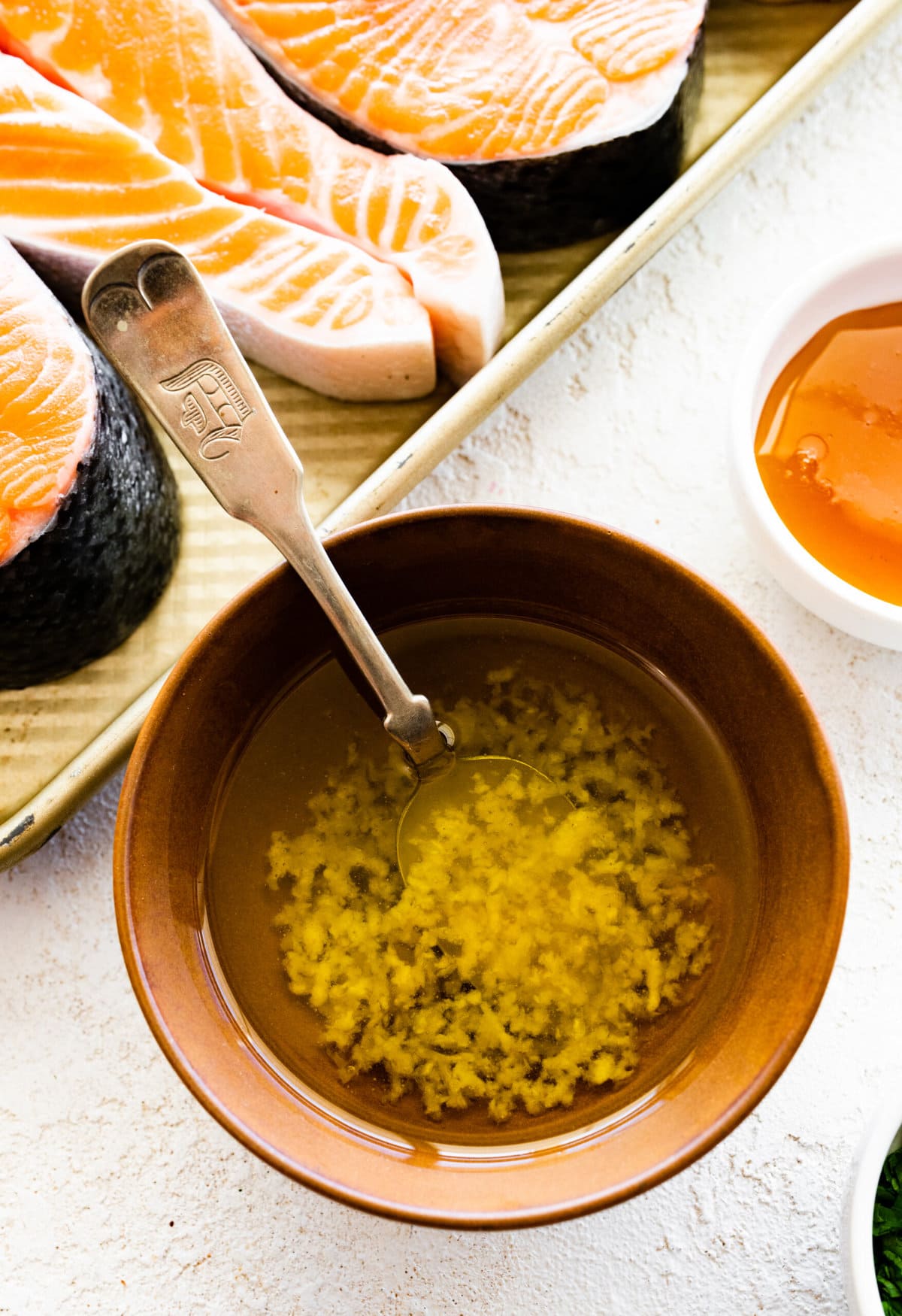
In a small bowl, combine melted butter or olive oil with minced garlic.
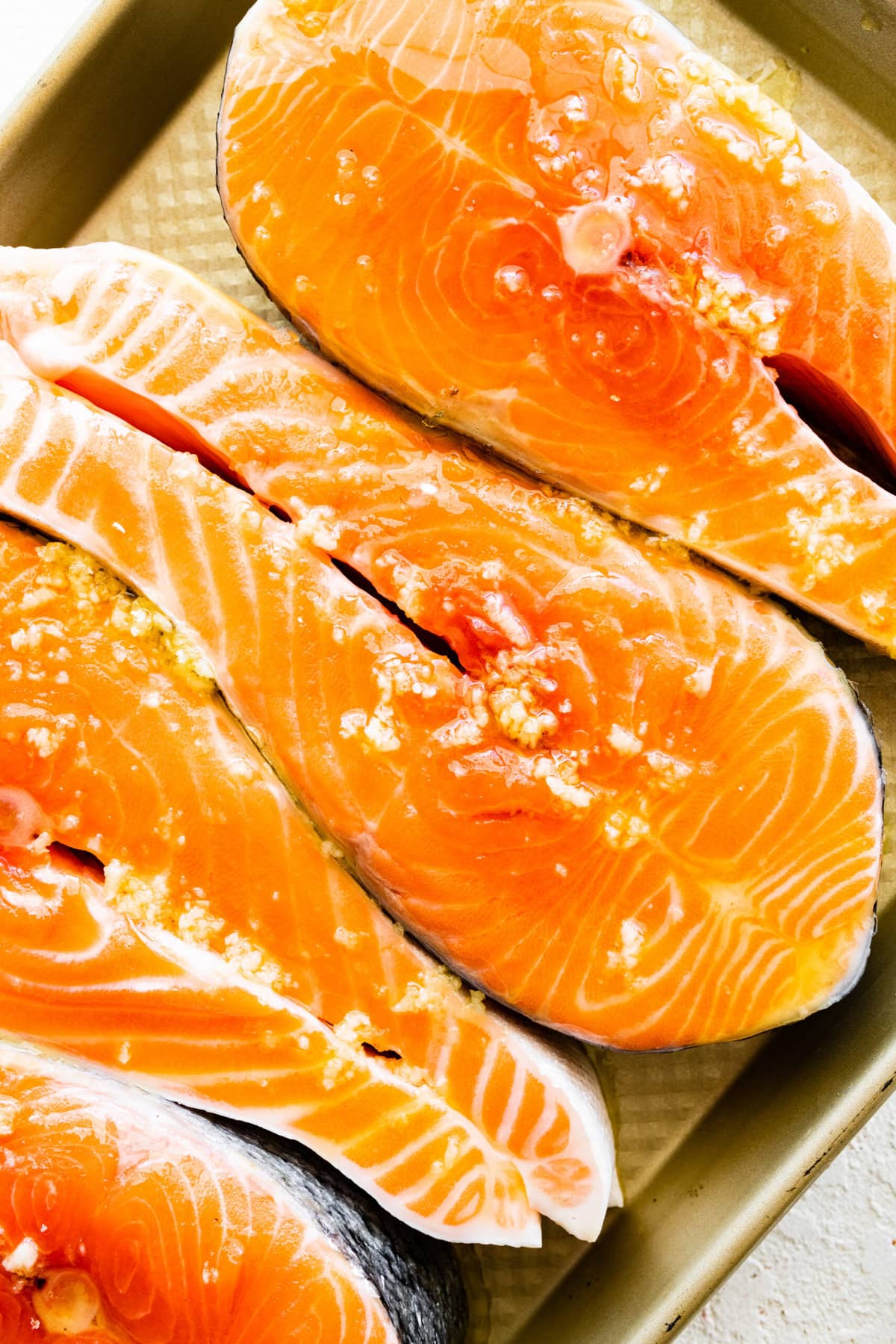
Use half of this mixture to baste the salmon steaks, making sure to coat all sides of the salmon.
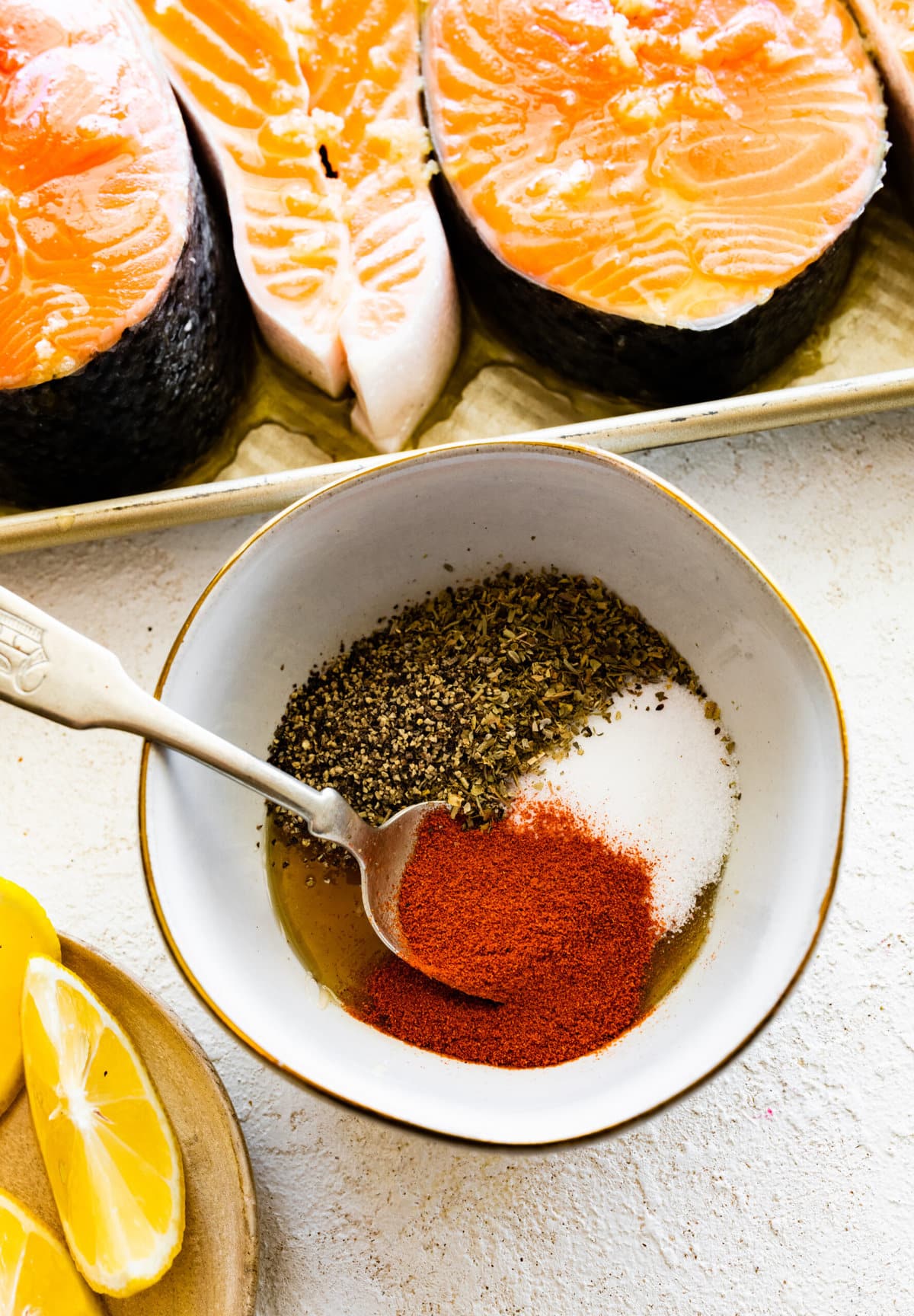
In a separate bowl, mix brown sugar, Italian seasoning, ground paprika, salt, and ground black pepper. Rub this mixture onto the top of the salmon steaks.
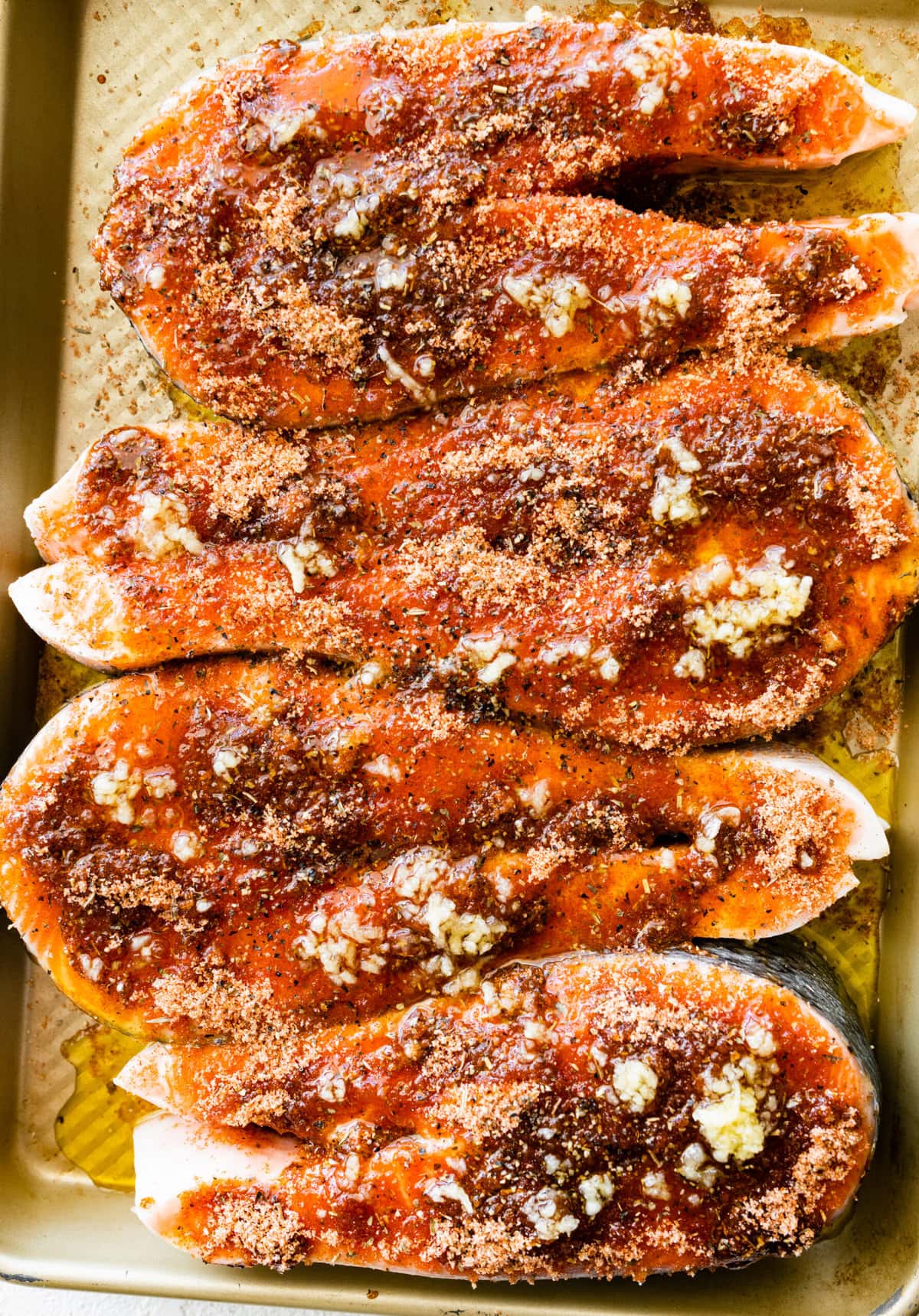
Drizzle the remaining half of the olive oil and garlic mixture over the salmon steaks.
Place the salmon steaks on the prepared
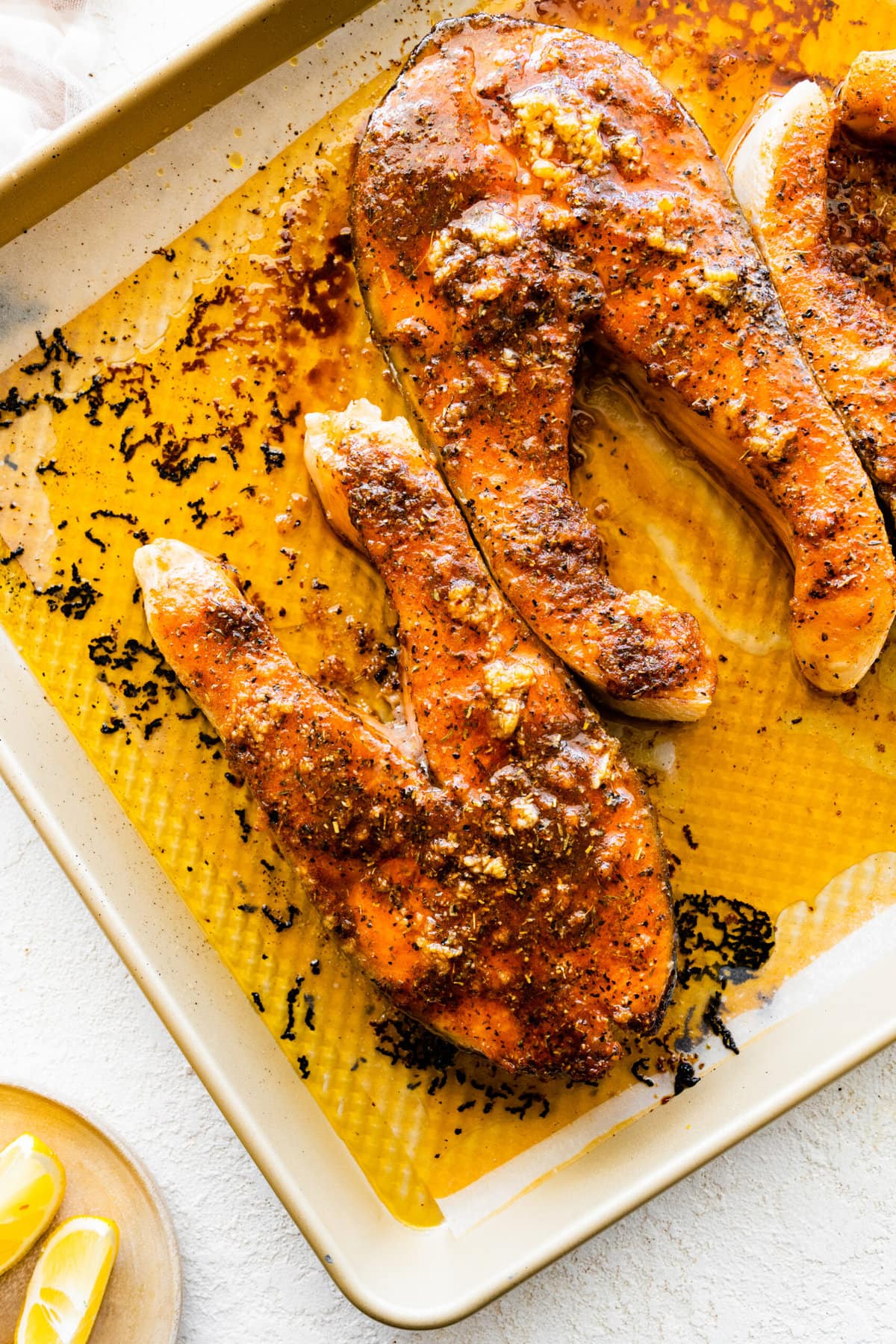
baking sheet or oven-safe baking pan.
Bake in the oven for 15-22 minutes or until the salmon is cooked and flakes easily with a fork. See notes on internal cooking temperatures.
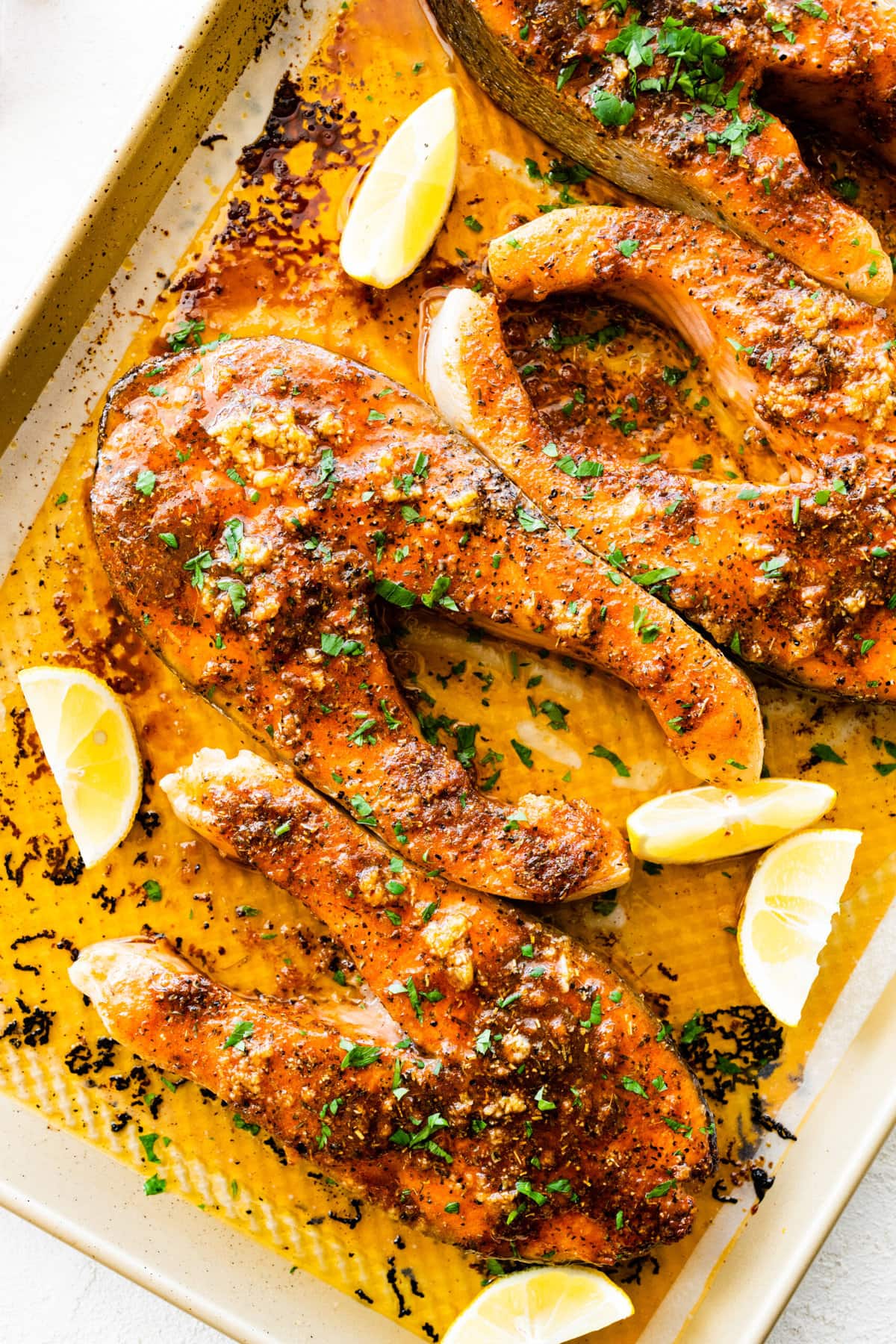
Once baked, remove the salmon from the oven and let it rest for 5 minutes before serving. Spoon any extra sauce over the salmon and add a squeeze of lemon juice just before eating!
This baked salmon steak recipe is your next weeknight dinner made easy!
Substitutions
- Salmon Steaks:
- In the U.S.A., you may have to ask your fishmonger to special cut the salmon into salmon steaks. If you can’t find them, use regular salmon fillets.
- Italian Seasoning:
- If you don’t have Italian seasoning, you can create your blend using dried herbs like oregano, basil, thyme, rosemary, and parsley. Feel free to use fresh herbs.
- Ground Paprika:
- Smoked paprika can be used as a substitute for ground paprika if you want a smokier flavor.
- Brown Sugar:
- Honey or maple syrup can be used as an alternative to brown sugar for sweetness.
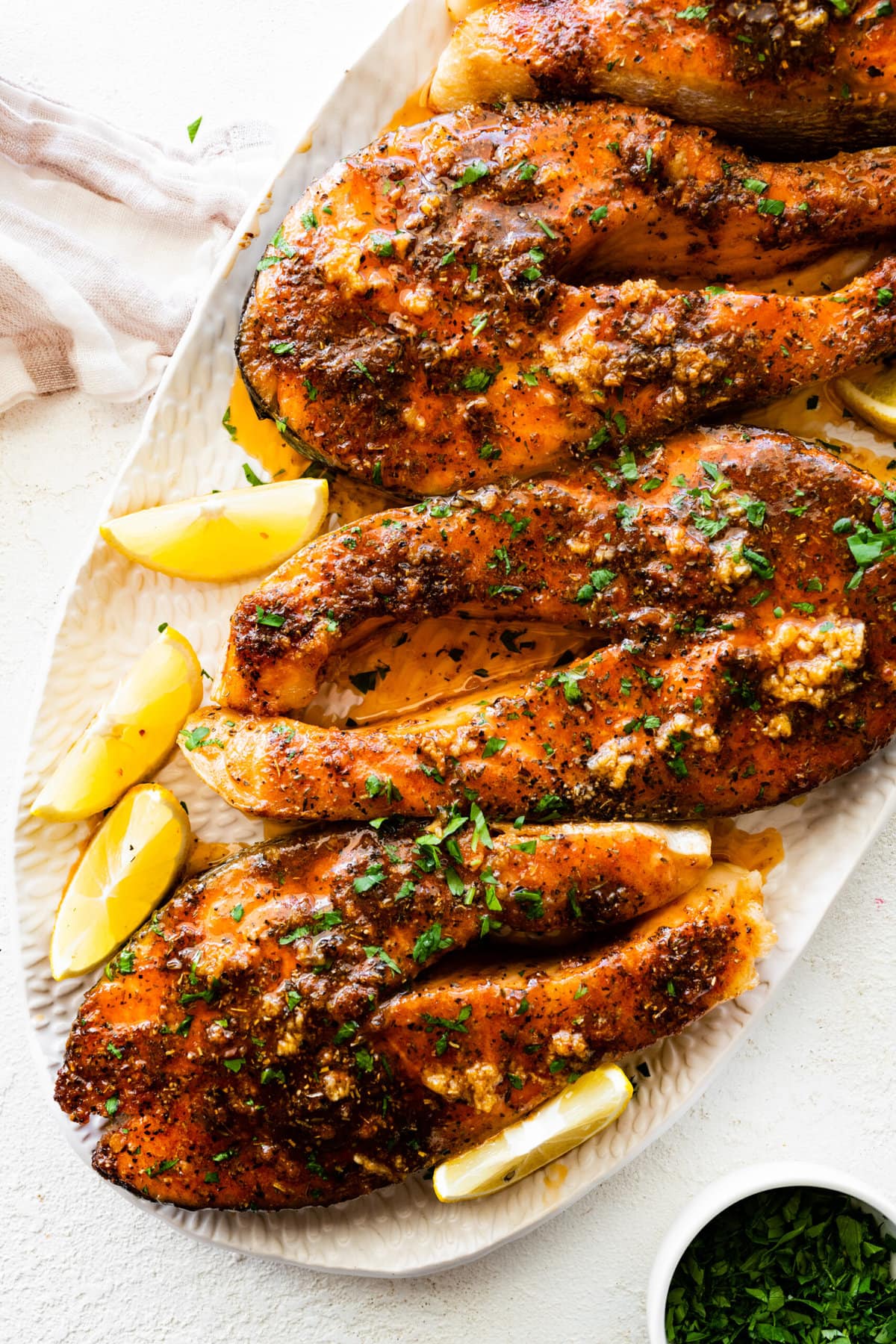
Variations
- Citrus Infusion:
- Add a burst of citrus flavor by incorporating lemon or orange zest into the seasoning mix or drizzling fresh citrus juice over the salmon.
- Spicy Kick:
- For those who enjoy heat, add a pinch of cayenne pepper or red pepper flakes to the seasoning mix.
- Asian-Inspired Teriyaki Salmon:
- Replace Italian seasoning with a blend of soy sauce, ginger, and garlic for an Asian-inspired flavor profile. A store-bought teriyaki sauce is great, too.
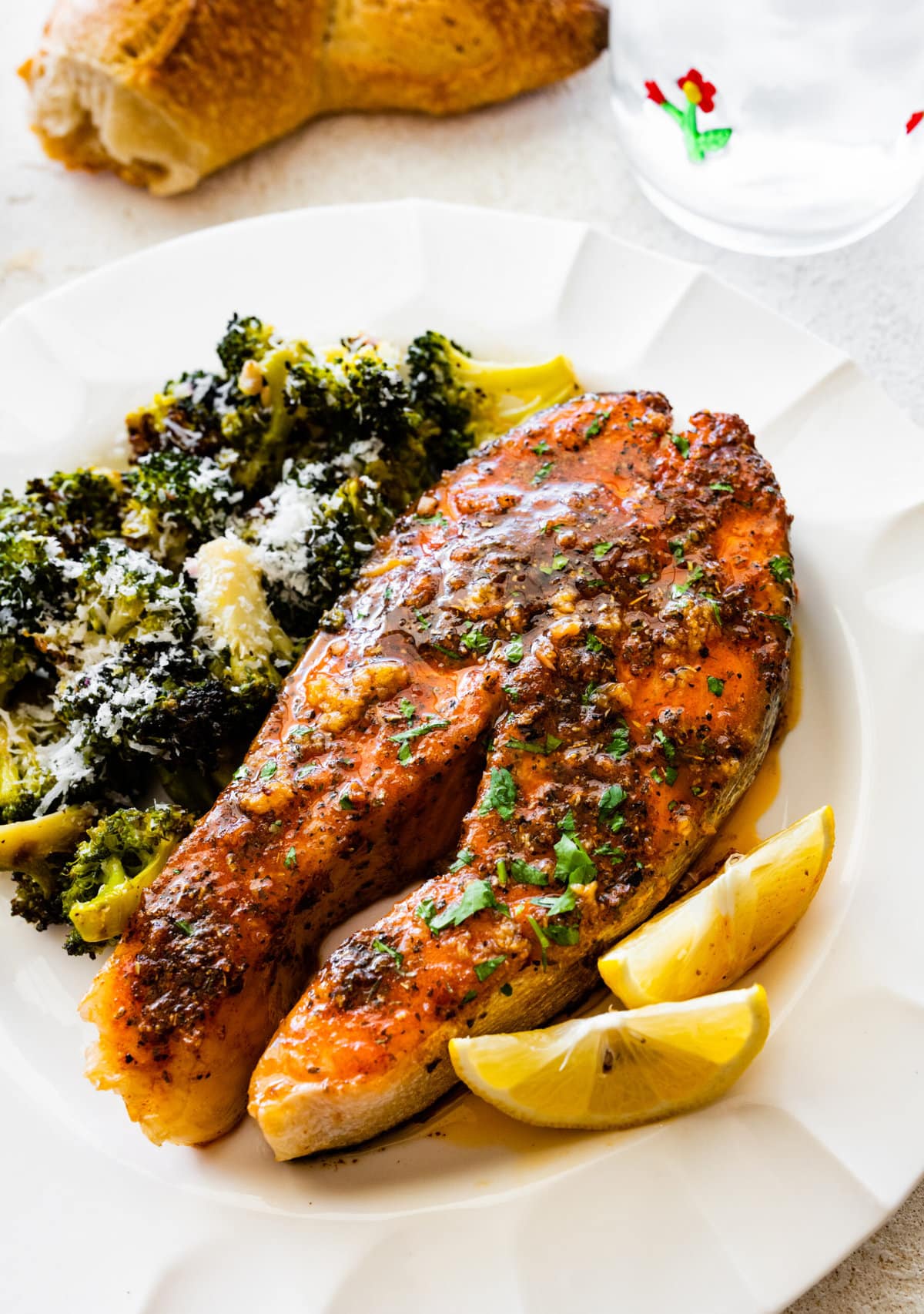
Storage
- Refrigerate leftovers promptly.
- Place in an airtight container.
- Consume within 2-3 days for optimal freshness.
Top tips for best results
- Fresh Ingredients: Use fresh, high-quality salmon for the best flavor and texture.
- Proper Seasoning: Ensure even seasoning by rubbing the dry mixture thoroughly onto the salmon.
- Balanced Basting: Baste with the olive oil and garlic mixture for moisture and flavor.
- Preheating Oven: preheat the oven to 375°F (190°C) before baking for consistent cooking.
- Cooking Time: Monitor the salmon closely and adjust cooking time based on thickness to prevent overcooking.
- Resting Period: Allow the salmon to rest for a few minutes after baking to retain juices.
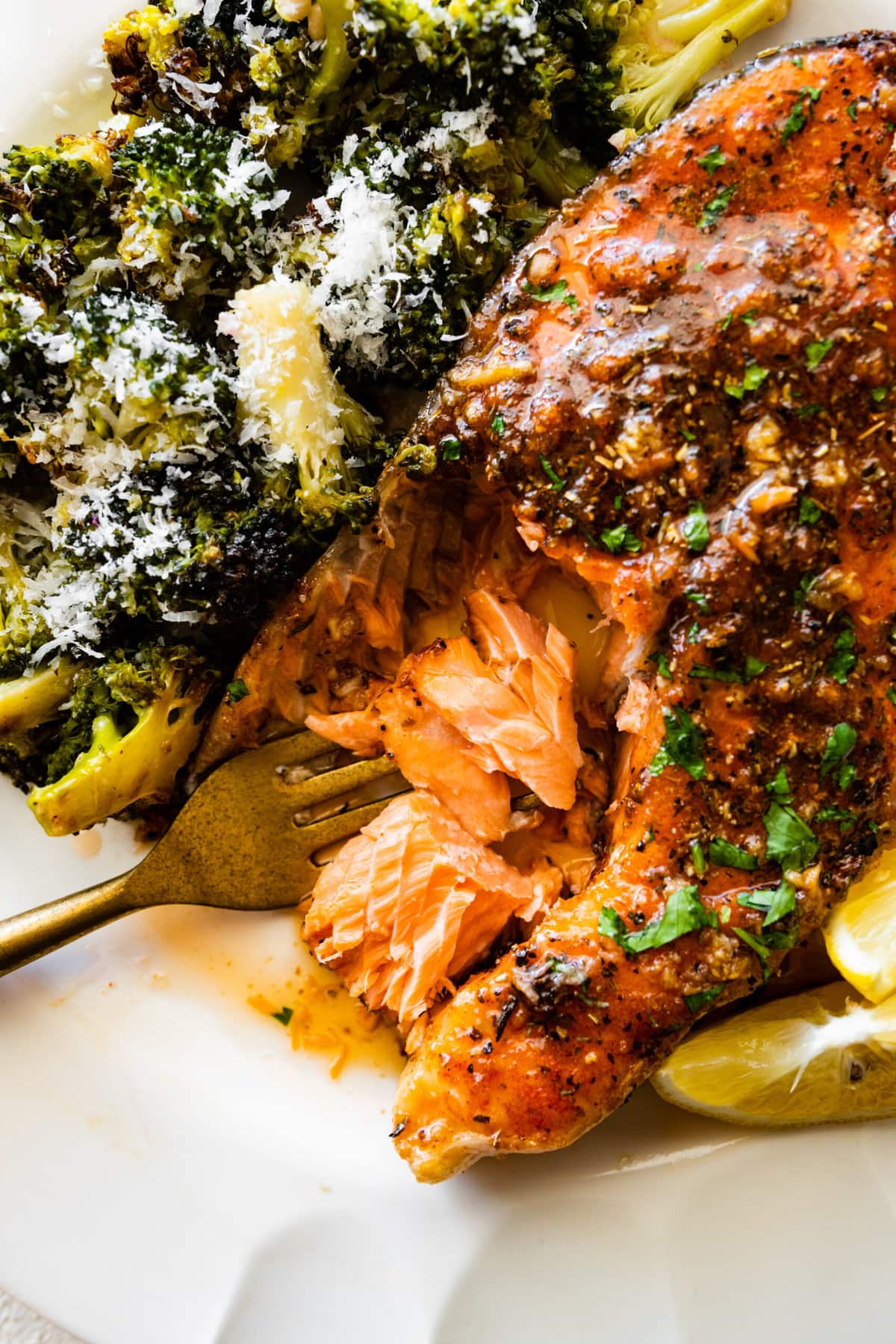
FAQs
The FDA recommends cooking fish, including salmon, to an internal temperature of 145°F (63°C). Here’s a guide to internal temperatures for salmon:
Rare: 120-125°F (49-52°C) – Some people enjoy salmon cooked to this temperature for a more delicate texture and flavor.
Medium-Rare: 130-135°F (54-57°C) – Salmon will be slightly opaque outside and more translucent in the center.
Medium: 140-145°F (60-63°C) – This is the recommended safe temperature according to the FDA. Salmon will be opaque and flake easily.
Well-Done: 150°F (66°C) and above – If you prefer your salmon well-done, ensure it reaches this temperature.
Keep in mind that there is carry-over cooking, which means the temperature of the salmon may continue to rise a few degrees after you remove it from the oven due to residual heat. Removing the salmon from the oven before reaching the desired internal temperature allows carry-over cooking to complete the process.
The main difference between salmon steaks and fillets is the cut and composition. Salmon steaks are cross-sectional cuts that include a portion of the backbone, often with the skin, providing a richer flavor. Salmon fillets are boneless cuts taken parallel to the backbone. The main difference is the cut of salmon used.
When choosing salmon for salmon steaks, consider using varieties with a good balance of flavor, texture, and richness. Types of salmon include:
Chinook (King) Salmon: Known for its high-fat content, Chinook salmon has a rich, buttery flavor, making it an excellent choice for salmon steaks.
Sockeye (Red) Salmon: Sockeye salmon has a bold flavor, vibrant red flesh, and a firm texture, making it a popular option for those who enjoy a more robust taste.
Coho (Silver) Salmon: Coho salmon has a milder flavor than Chinook and Sockeye, with a more delicate texture. It’s a versatile choice for salmon steaks.
Atlantic Salmon: Although primarily farm-raised, Atlantic salmon is readily available and offers a mild, buttery flavor. Choose sustainably sourced options.
More Recipes
Looking for other recipes? Try these:
Serving Suggestions
These are my favorite dishes to serve with these salmon steaks:
💙 MADE THIS RECIPE AND LOVED IT? 💙 Please leave a ⭐️STAR rating and COMMENT below- I love connecting with you! Tag me with your creations on Instagram and find me on Pinterest.
Baked Salmon Steaks Recipe

Ingredients
- 3-4 salmon steaks* about 1 1/2 inch thick, you can also use salmon filets!
- 4 tablespoons melted butter OR olive oil
- 2 cloves garlic, minced
- 1 tablespoon brown sugar
- 1 teaspoon Italian seasoning
- ½ teaspoon ground paprika
- ¾ teaspoon salt
- Ground black pepper to taste
- Fresh parsley, finely chopped for garnish
- Lemon slices, for garnish
Instructions
- Preheat the oven to 400°F. Line a rimmed baking sheet with aluminum foil or parchment paper and grease with a little cooking spray or oil. You can also use a large baking dish.
- Pat salmon steaks dry with a clean paper towel.
- In a small bowl, combine melted butter or olive oil with minced garlic. Use half of this mixture to baste the salmon steaks, making sure to coat all sides of the salmon.
- In a separate bowl, mix honey or brown sugar, Italian seasoning, ground paprika, salt, and ground black pepper. Rub this mixture onto the top of the salmon steaks.
- Drizzle the remaining half of the olive oil and garlic mixture over the salmon steaks.
- Place the salmon steaks on the prepared baking sheet or oven-safe baking pan.
- Bake in the oven for 15-22 minutes or until the salmon is cooked and flakes easily with a fork. See notes on internal cooking temperatures.
- Once baked, remove the salmon from the oven and let it rest for 5 minutes before serving. Spoon any extra sauce over the salmon.
- Enjoy your delicious Easy Oven Baked Salmon Steaks!
Notes
- Rare: 120-125°F (49-52°C) – Some people enjoy salmon cooked to this temperature for a more delicate texture and flavor.
- Medium-Rare: 130-135°F (54-57°C) – Salmon will be slightly opaque outside and more translucent in the center.
- Medium: 140-145°F (60-63°C) – This is the recommended safe temperature according to the FDA. Salmon will be opaque and flake easily.
- Well-Done: 150°F (66°C) and above – If you prefer your salmon well-done, ensure it reaches this temperature.
Nutrition
Nutrition information is automatically calculated, so should only be used as an approximation.
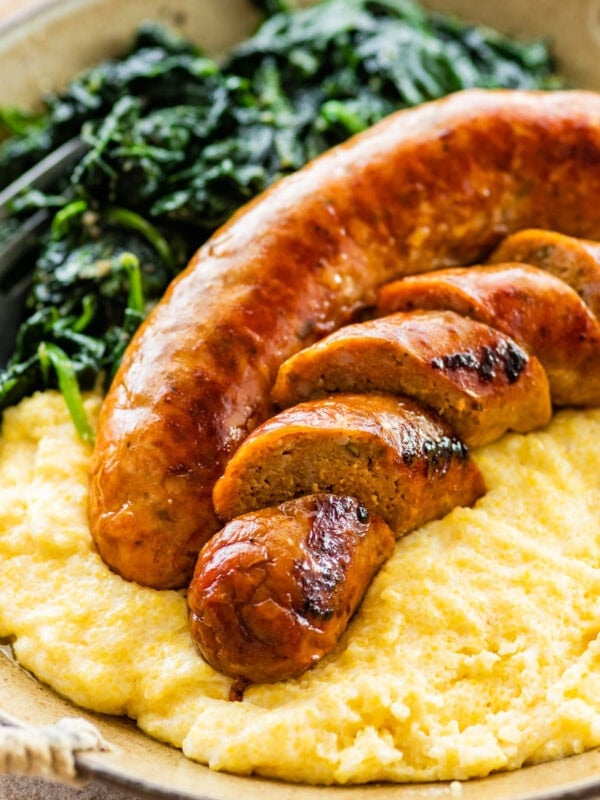
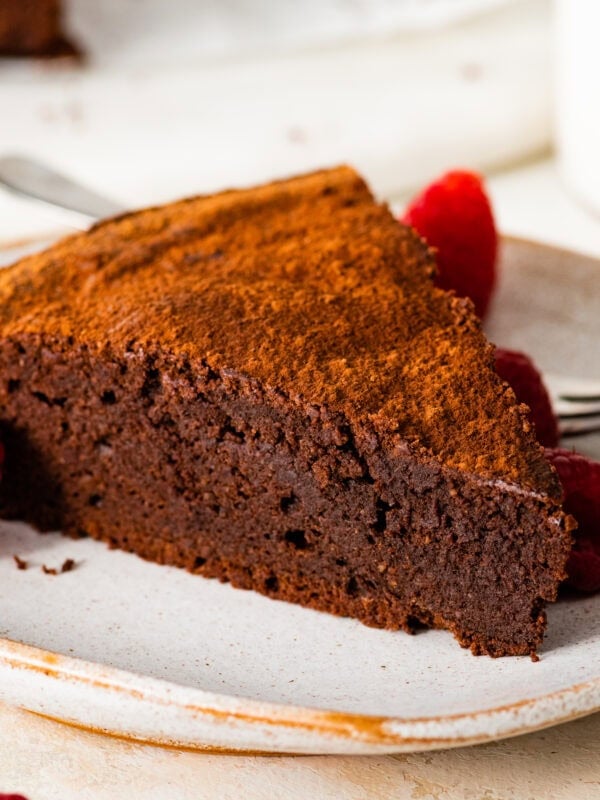
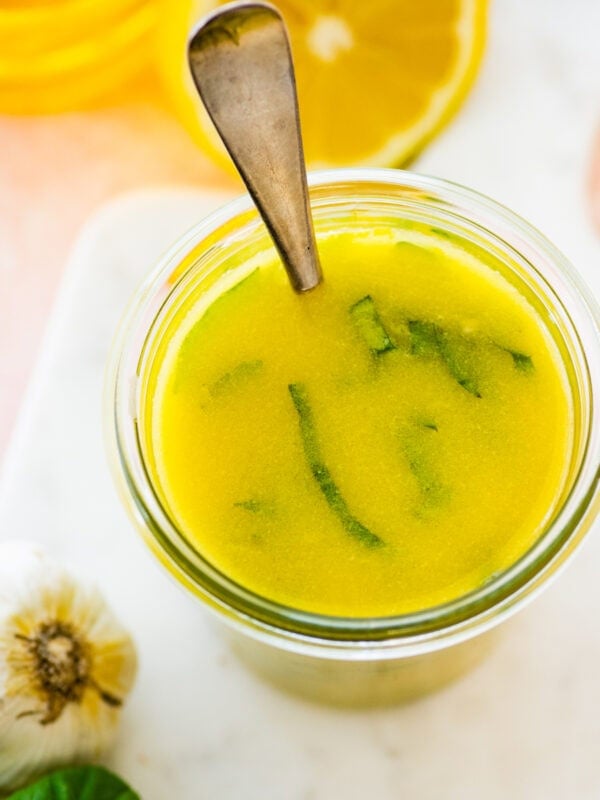
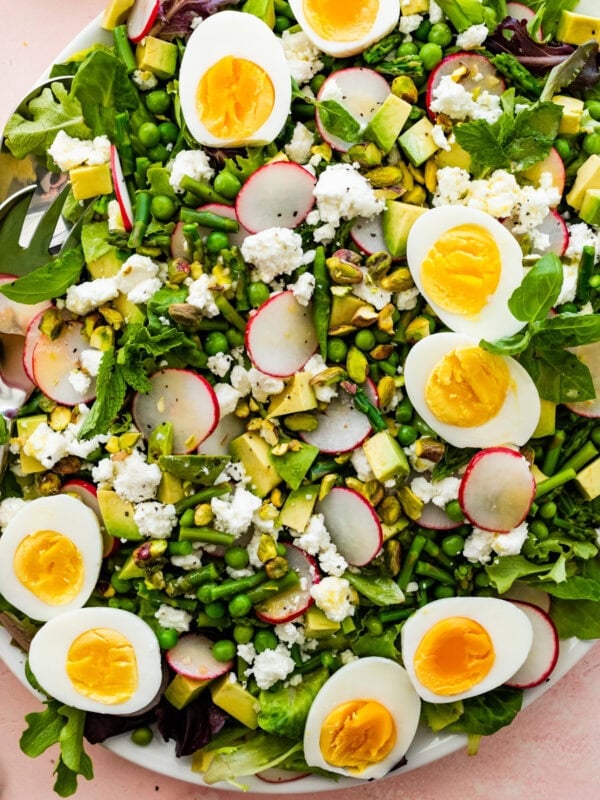
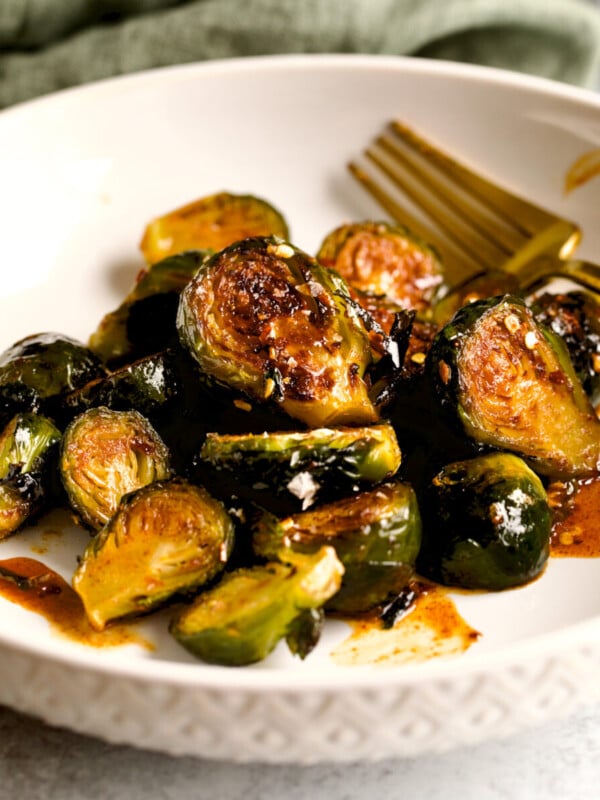
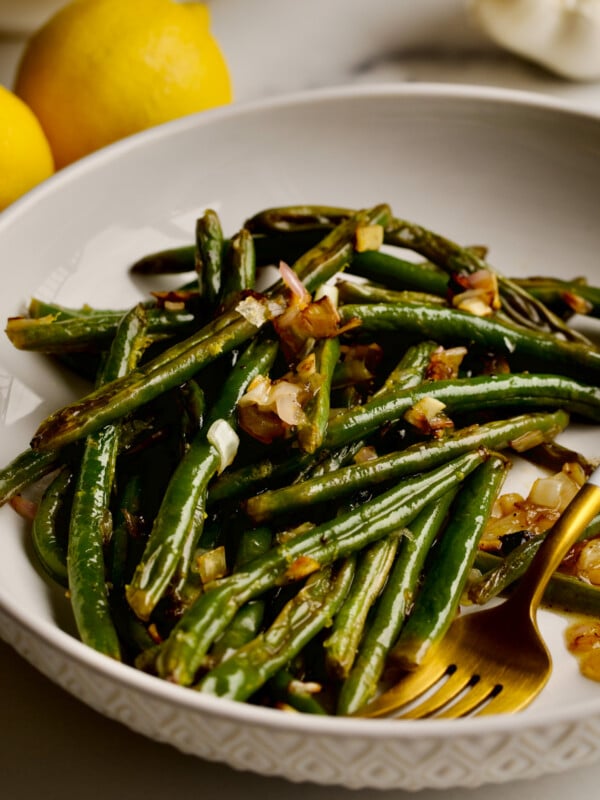
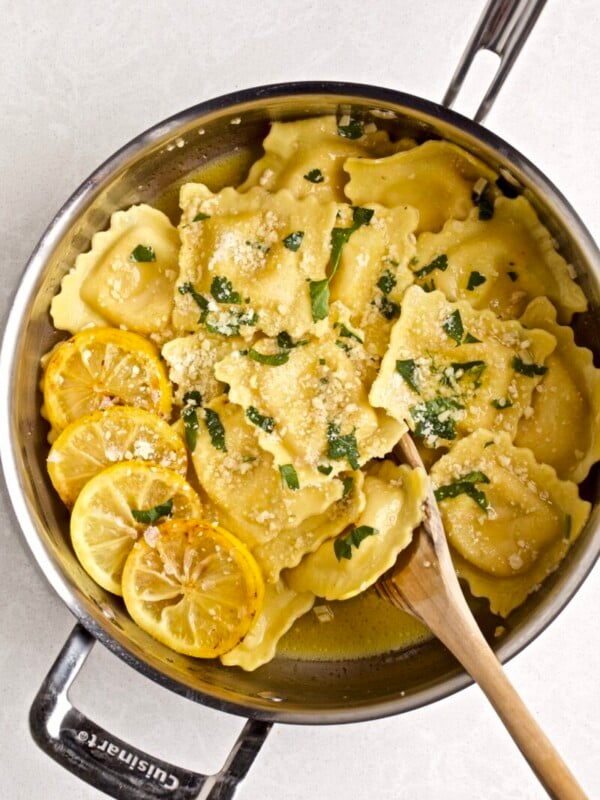
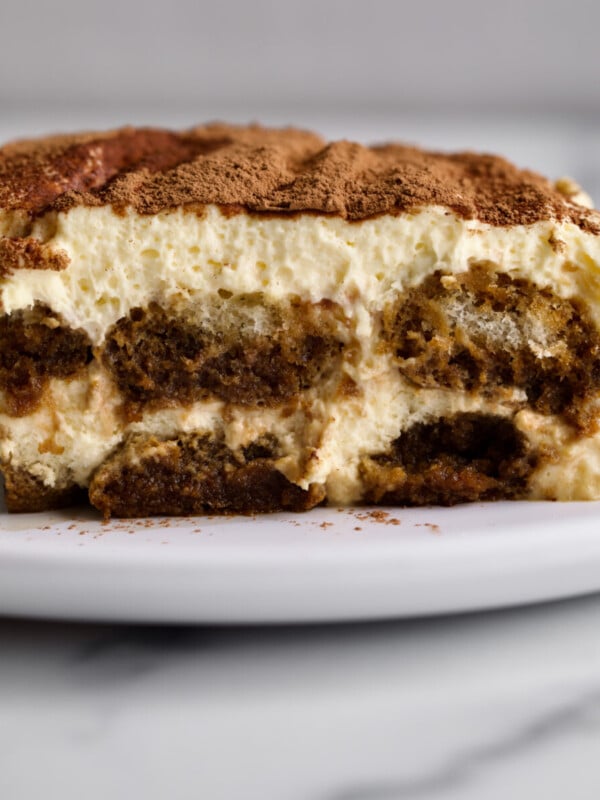
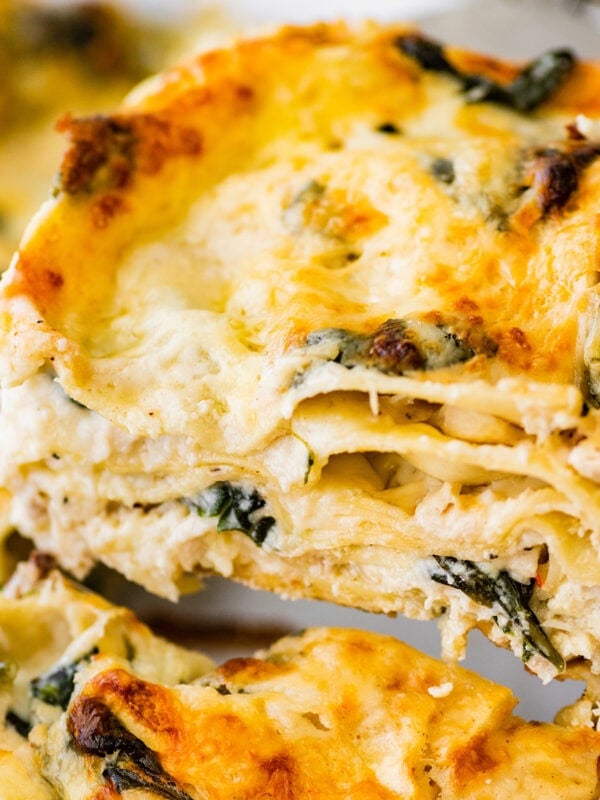
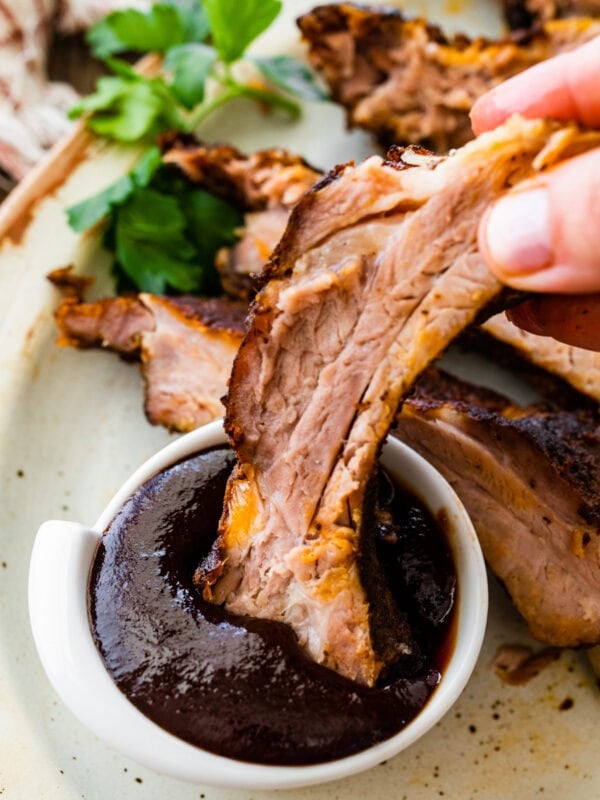
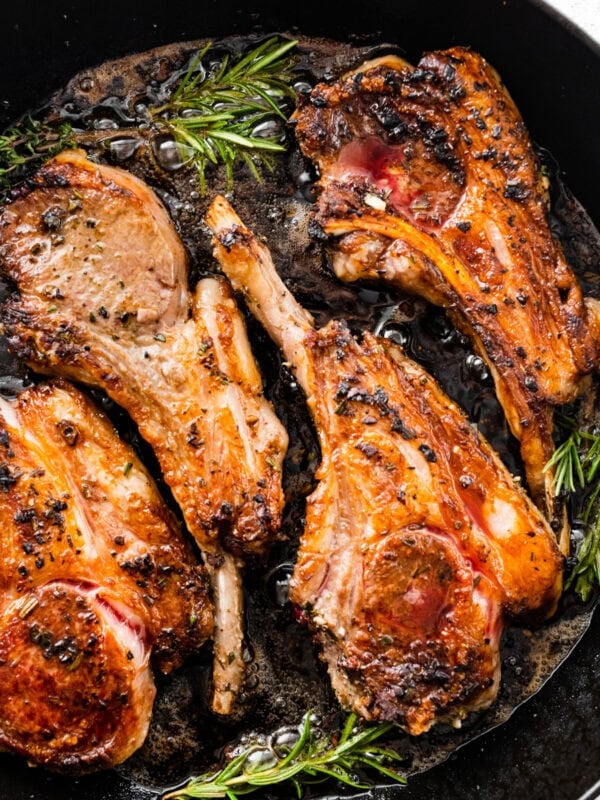
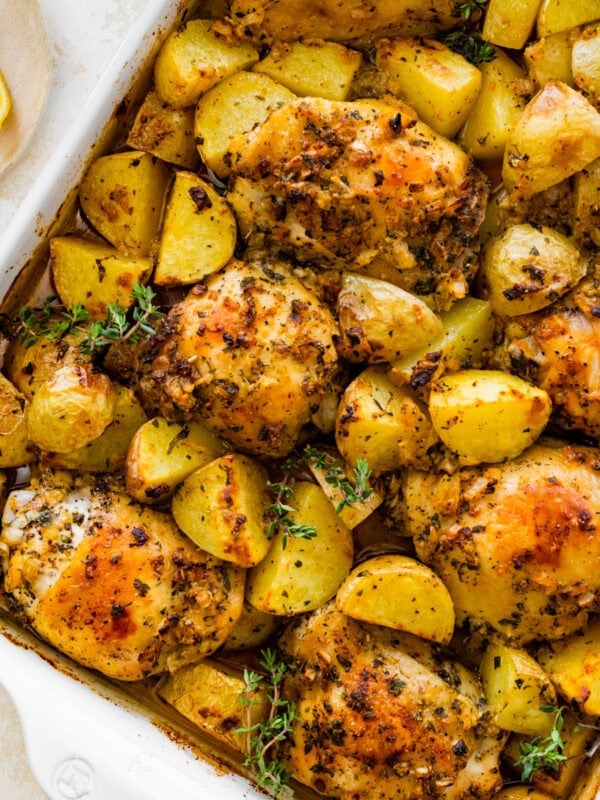




Very tasty and simple
Thanks! I love how easy it is to throw together and it gives the salmon the best flavors.
It says to cook between 15-22 minutes. At what time should I check for the preferred temperature, especially when it continues to cook when you take it out of the oven?
Check at 15 minutes if you like it less well-done.
Perfect cooking times for a moist, flaky cut of salmon, easily put together. Enjoyed it!😋
Yay! Happy you loved it!
Going to make this weekend but my question is the recipe says 400 degree oven, in the write up it says 375 degree oven, please clarify.
I need to fix that! Thanks. It should be 400 degree F!
This was the most tender, juicy and flavorful salmon I’ve ever had!
I feel the same! Thank you, and happy you enjoyed it!